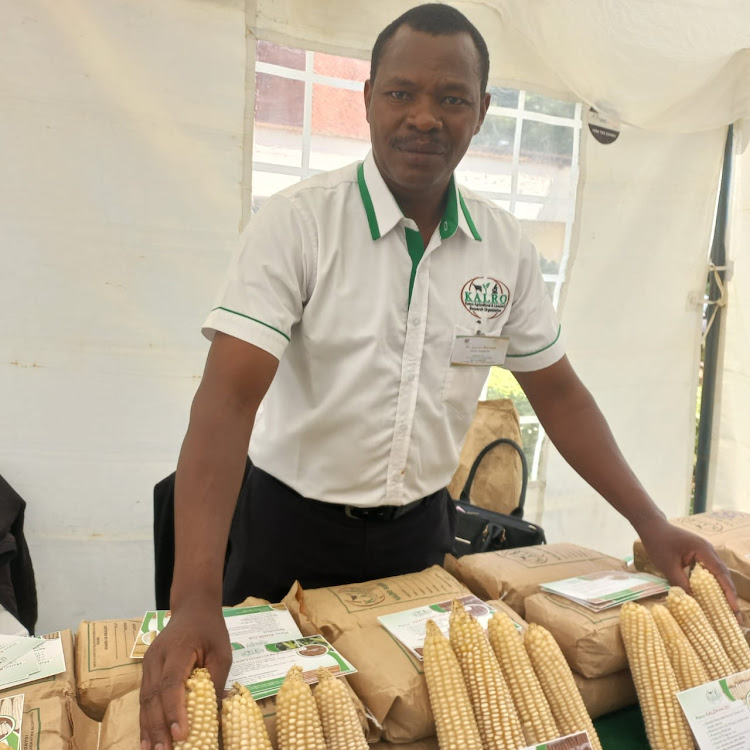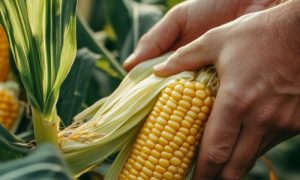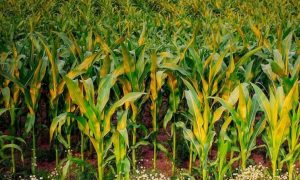Farmers can now access armyworm-resistant maize seeds

Researchers release armyworm-resistant maize varieties after six years of farmer losses. New seeds approved by Kenya’s Ministry of Agriculture offer hope to small-scale farmers like Maurice Makaa in Makueni County. Varieties FAWTH2001, FAWTH2002, and FAWTH2003 expected to combat devastating pest attacks. Seed distribution to commence during short rains season, boosting food security efforts. Agricultural infrastructure worth US$500,000 launched to support irrigation and storage. Joint efforts by local and international organizations crucial in developing climate-resilient seed varieties.
Researchers have released new maize varieties resistant to the deadly armyworm.
This is after more than six years of famers grappling with massive losses.
Maurice Makaa, a small-scale farmer in Makueni County said the armyworms ruined farmers food and livelihoods.
“We planted many times but ended up not harvesting anything. The pests would destroy the entire crop,” he said.
Kenya Agriculture and Livestock Research Organisation director general Eliud Kireger said the new seeds were developed to contain the spread of the dangerous migratory pest.
The National Varieties Release Committee, which is chaired by the Ministry of Agriculture approved the seeds on February 20 last year.
This followed recommendations by the National Performance Trail Committee led by Kenya Plant Health Inspectorate Service.
The approval saw the release of FAWTH2001, FAWTH2002 and FAWTH2003 maize varieties.
However, owing to the subsequent activities mainly bulking by local and regional seed companies, farmers will only access the hybrid varieties during the short rains season.
“After final approval by the NVRC and eventual gazettement, the seeds will be released to commercial seed companies for production, before planting season,” Kireger said.
In 2017, farmers in some counties lost entire crops following an attack by armyworms. Since then, they (farmers) have been grappling with the pest, leading to food reduction.
Armyworms cause losses of about one million tonnes of maize every year.
Kireger spoke during the launch of a US$500,000 (Sh62.3 million) agricultural infrastructure.
The infrastructure was financed by donors coordinated by the International Maize and Wheat Improvement Center (CiMMYT).
“The facilities include a seed drier shed, cold room and water reservoir to support irrigation. We expect farmers to increase production in coming years once they start planting the new armyworm-tolerant varieties and eventual expansion of area under farming,” Kireger said.
CiMMYT director Prassana Boddupalli said the armyworm-tolerant maize varieties were realised through combined efforts of local and international research organisations.
The organisations have been working on the Plant Health Innovation Platform (PHIP) that seeks to use integrated pest management of the pests using technology.
PHIP is a joint project that seeks to introduce new technologies and tolerant maize varieties to contain the spread of armyworm..
“The maize varieties have been developed from Mexico germplasm or Cuban and they have been systematically transferred in Africa. They have passed the national performance trial by the Kephis,” said Boddupalli.
“Kenya survived the worst drought situation in 2022, but development of the climate resilient seed varieties will help greatly in taming the drought impacts. And in the long run will increase farmers’ income and production,” he said.
The new varieties Dr. Boddupalli said there are a number of technologies being fast tracked to help farmers adapt to climate change shocks. Once approved Boddupalli explained that the same will be shared with local organisations and agriculture extension units to commercialize them.
Kalro assistant director Zachary Kinyua said destruction of crops by armyworm has reduced drastically since 2017.
“The successful reduction in terms of damage by the pest followed an intensive integrated approach mounted by the government assisted by other stakeholders,” he said.
James Karanja, a maize breeder working with Kalro said they will provide farmers with maize varieties that will address drought, pests and diseases.
“We urge seed growers to come in bound and help to multiply the seeds so that farmers can benefit from these climate smart technologies,” he said.
Source link: https://www.the-star.co.ke/news/star-farmer/2024-04-30-farmers-can-now-access-armyworm-resistant-maize-seeds/

















